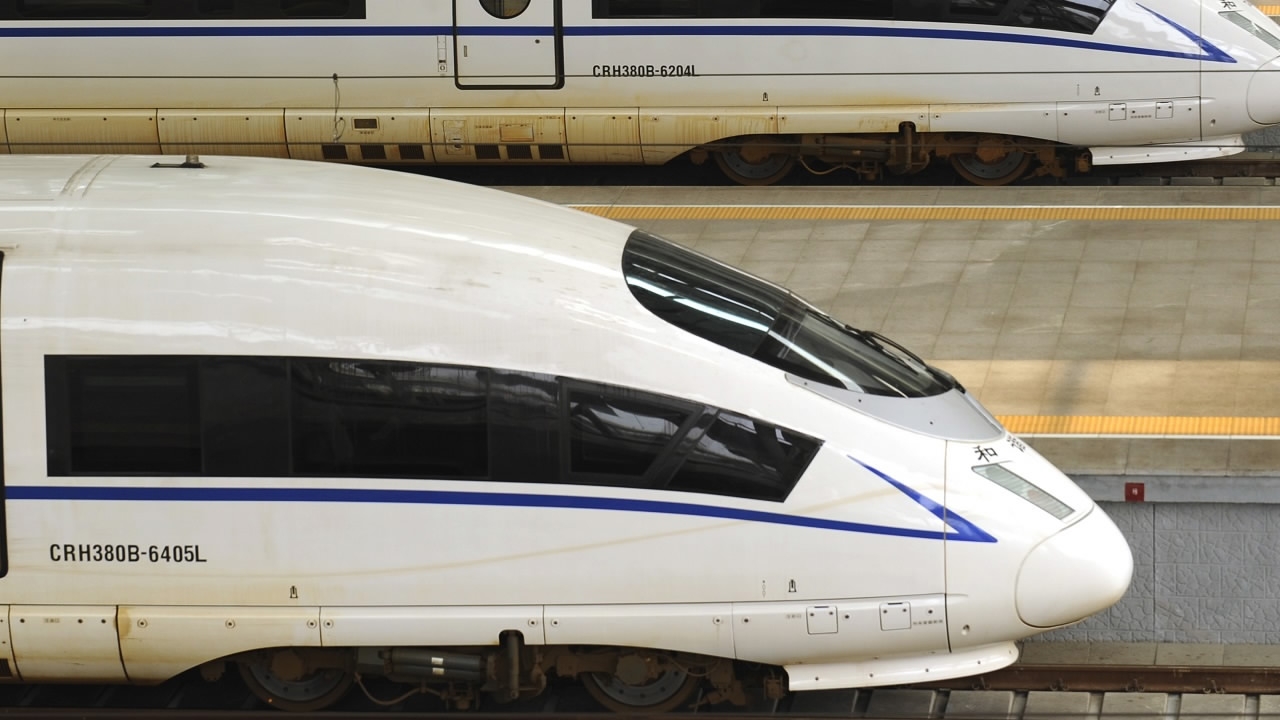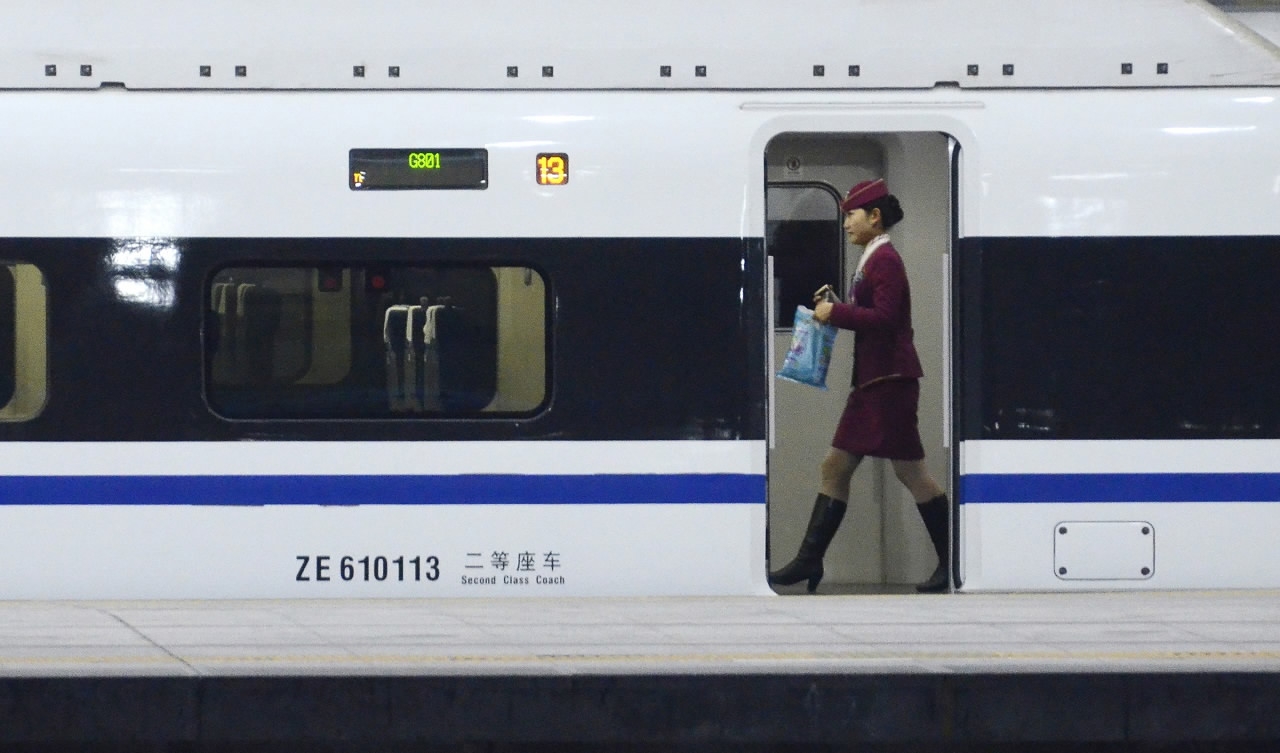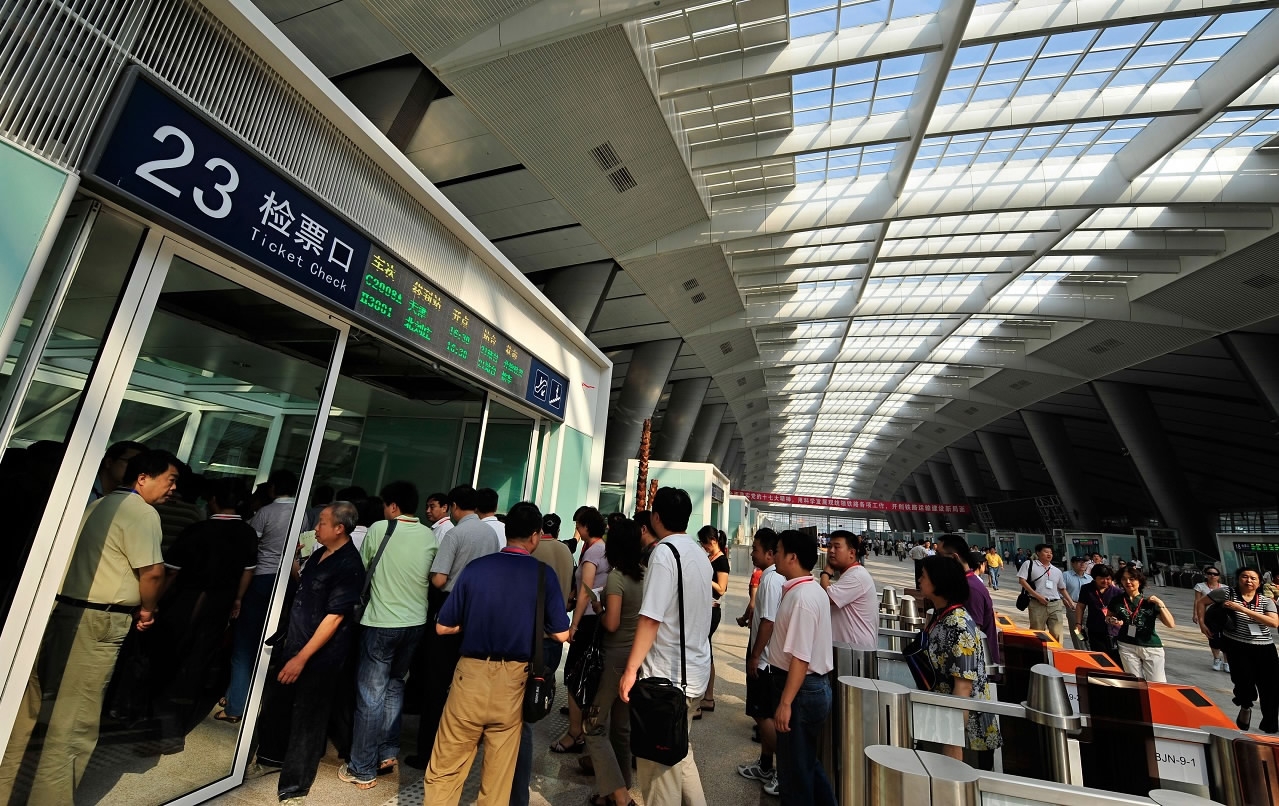
Tech & Sci
14:29, 10-Sep-2017
China's high-speed railway changes aviation industry

China's high-speed railway has changed the scale of the civil aviation industry, a civil aviation professional said on Thursday.
"We used to believe that trips within 800 kilometers are bullet train's market. But with the development of China's high-speed rail network, the market may expand to trips in 1,000 kilometers," said Han Zhiliang, president of China's busiest airport Beijing Capital International Airport, adding that civil aviation in China is facing challenges in the next five years.
Han made the remarks at the Friend Airports Roundtable Conference.

China's high-speed railway changes civil aviation industry. /AFP Photo
China's high-speed railway changes civil aviation industry. /AFP Photo
"Unlike flights, trains are not easily affected by weather…Price is cheaper…China's high-speed rail grid has been developed greatly. In many areas, wherever there is an airport, it has access to high-speed rail…" Han said.
The impact from bullet trains has been seen by China's three major airlines, Air China, China Southern Airlines and China Eastern Airlines, according to their latest half-year earnings reports.
Air China said in its report that China has built the largest high-speed train network on the global, and the routes are expanding to the mid-western area. For medium and short-haul trips, many passengers prefer to choose high-speed trains as their way of transportation, given the high frequencies, cheap prices, on-time arrivals and convenience of high-speed trains, placing the aviation sector at a disadvantage.
The increase of international competition and complicated global politics also challenge China's civil aviation industry.

For medium and short-haul trips, many passengers prefer to choose high-speed trains as their way of transportation. /AFP Photo
For medium and short-haul trips, many passengers prefer to choose high-speed trains as their way of transportation. /AFP Photo
However, big challenges come along with great opportunities.
China's steady economic growth and opening-up policies have shed lights on the development of civil aviation, Han said.
Airliners in China carried 490 million passengers in 2016, ranking second in the world. Airliners in the United States carried nearly 930 million passengers.
"China has the potential to top the United States to carry the largest passenger population," Han said.
Belt and Road Initiatives encourages international communication, which will enhance the number of air travelers.
Source(s): China Daily

SITEMAP
Copyright © 2018 CGTN. Beijing ICP prepared NO.16065310-3
Copyright © 2018 CGTN. Beijing ICP prepared NO.16065310-3